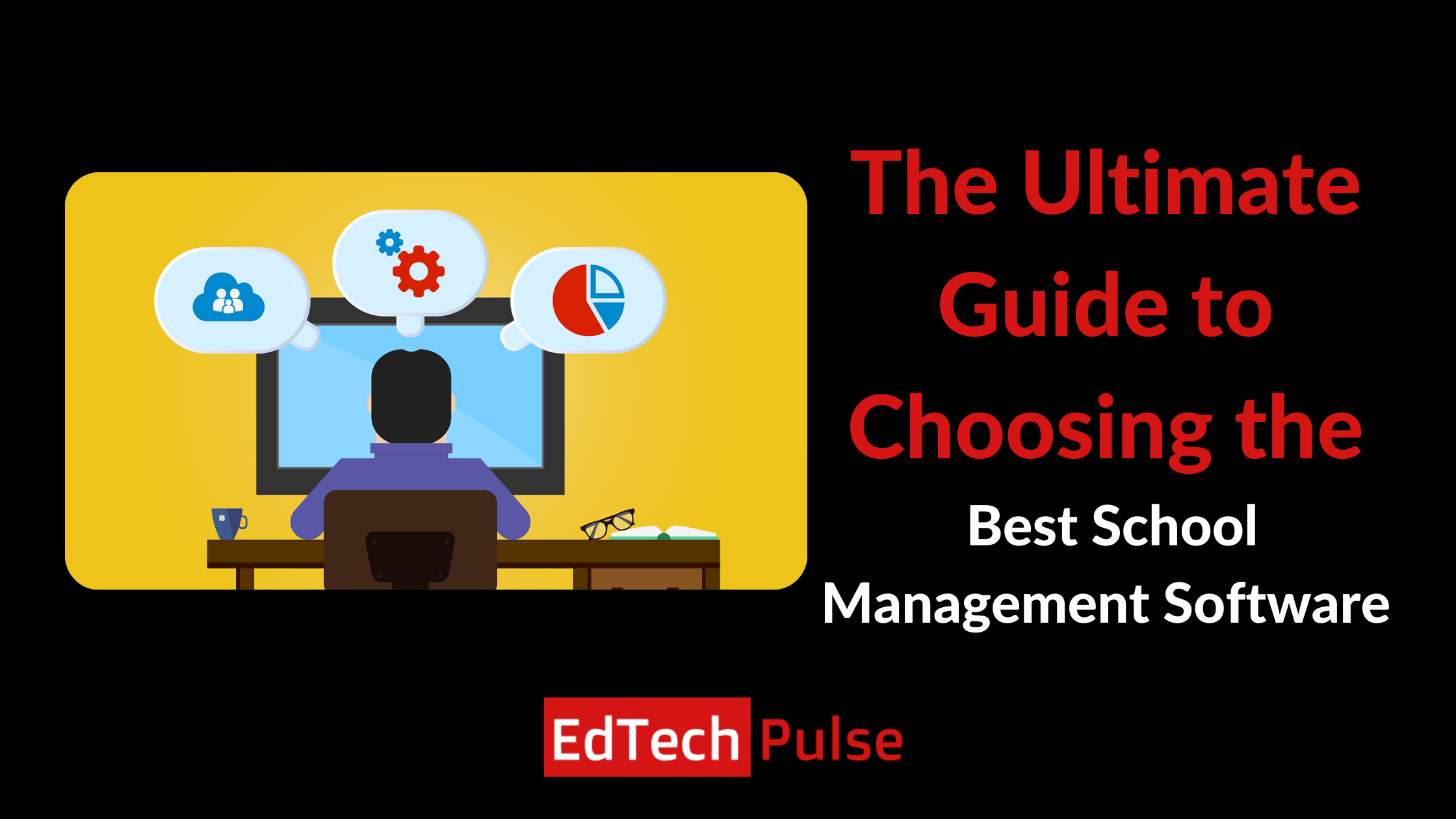The Ultimate Guide to Choosing the Best School Management Software
With more than 1.5 million schools, 8.5 million teachers, and 250 million students, the Indian education system is one of the biggest in the world. As IT and EdTech have developed over the past few years, numerous companies have started creating and offering solutions tailored to the education sector.
With the advancements, offline software has become outdated, and everyone is looking for cloud-based school management applications. A school management system is an excellent tool for maintaining simplicity and order. One task that needs a great deal of space and time is keeping track of everything in a school. In this case, a school management system can quickly make schools more organized and productive.
Factors to Consider While Choosing a School Management Software
The system's implementation and successful operation will require considerable time and money. So, before choosing a school management software to purchase, schools must consider a few factors. Here are some factors schools should consider while selecting a School Management Software:
1. Helpful Features
Almost every school management software includes a variety of functions. But, it's crucial not to get carried away with the features the software lists. Sometimes, they lack in-depth features, rendering the software ineffective.
To prevent disappointment, ensure that the features you need have depth. For instance, there is a software solution with fewer features but is 100% relevant. In contrast, another software has numerous features but is only 80% helpful. Of these, the one with 100% relevant features is a better investment. These functions must address specific management issues a school is facing.
2. Upgrades and Updates
Choosing a continuously improving and evolving system is essential. Software solutions that are regularly updated considering emerging technological developments meet this requirement.
Technical issues could arise in the future if your chosen software company does not invest in sustaining the current features and new updates needed based on versioning. So, select the company that provides frequent updates.
3. Flexibility
The appropriate techniques and standards should enhance a school management system. It is because school systems and processes change continuously. So, it's critical to understand the level of flexibility offered by any software a school uses.
An ideal school management software must adapt to the changes in the methods a school manages itself. So, choose a school management technology that is reliable, adaptable, and capable of accepting all recent data going to the school's records.
4. Strong EdTech Support Team
Many schools are dissatisfied with their software due to the absence of an efficient support team when they require a crucial update and help. As a result, in these situations, schools typically need to start looking for alternatives that can continue to operate by processing the data as before while still meeting their needs.
An effective support team avoids the hassle of manually processing any necessary data. If the software providers are competent experts in their industry, they will resolve the technical problems with any software program. Therefore, picking a trustworthy provider that offers backup support is very crucial.
5. Availability: Standalone or Web-based
It can be efficient to host school management software offline and online, but it depends on your requirements and the available equipment. Both approaches have their distinct advantages. The offline system can be helpful if a school is experiencing any problems with internet connectivity because the software won't depend on the availability and speed of the Internet.
On the other hand, the availability of school management applications anywhere makes it feasible for staff, parents and students to access them even from their homes, which is a critical benefit of internet deployment. Although the school may opt for an offline approach, web-based software is better. It is because when a school wishes to ensure the stability of the Internet, they can easily host the same software online.
6. Ease of Use
The software's usability is crucial in determining the benefits that a school can get from using it. If the software is complicated, teachers can find it difficult to embrace it or may have to do the work manually. Thus, the software should be user-friendly so that teachers and staff can learn using it with bare minimum effort.
7. Data Security Functions
Consider a scenario in which question papers for a crucial exam are leaked right before the test. Such occurrences can result in anxiety for both the administrative staff and the students.
So, it is crucial to pick the best school management software to prevent scenarios when question papers are stolen, compromised, or altered due to a security breach. So, the security system should fundamentally contain firewalls, password and OTP encryption, and a cloud-based, safe platform with role-based access to the data.
To Sum Up
Although the technology facilitates complex tasks, its solutions sometimes might not be streamlined and practical. The effectiveness of specific school software, backup support, and security measures are vital. Therefore, consider these aspects when looking for the best school management software. They will streamline all the information, making it easily accessible.
